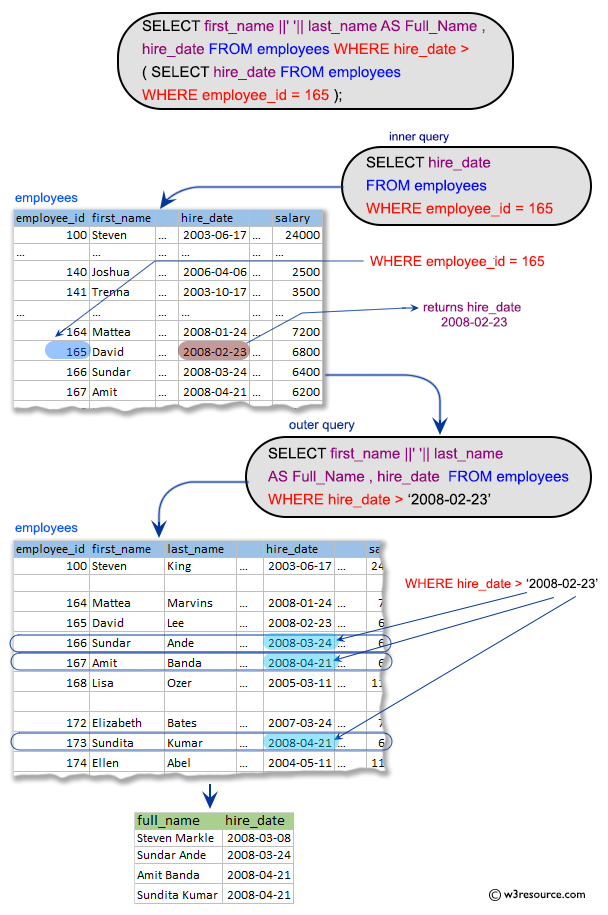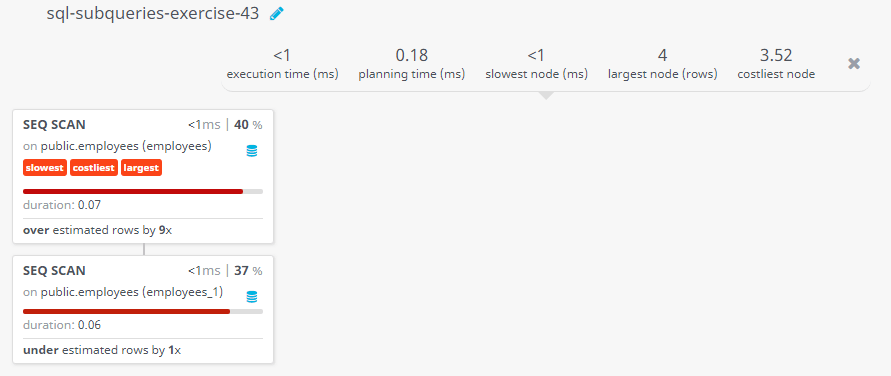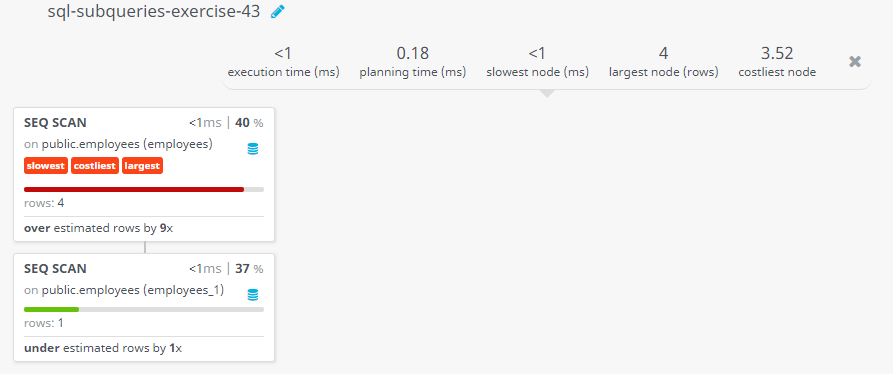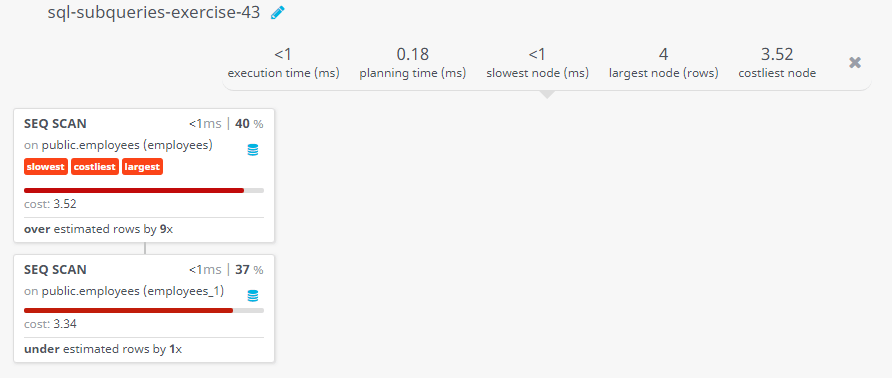SQL Exercises: Employees who was hired after the employee with ID 165
From the following table, write a SQL query to find those employees who joined after the employee whose ID is 165. Return first name, last name and hire date.
Sample table: employees
+-------------+-------------+-------------+----------+--------------------+------------+------------+----------+----------------+------------+---------------+ | EMPLOYEE_ID | FIRST_NAME | LAST_NAME | EMAIL | PHONE_NUMBER | HIRE_DATE | JOB_ID | SALARY | COMMISSION_PCT | MANAGER_ID | DEPARTMENT_ID | +-------------+-------------+-------------+----------+--------------------+------------+------------+----------+----------------+------------+---------------+ | 100 | Steven | King | SKING | 515.123.4567 | 2003-06-17 | AD_PRES | 24000.00 | 0.00 | 0 | 90 | | 101 | Neena | Kochhar | NKOCHHAR | 515.123.4568 | 2005-09-21 | AD_VP | 17000.00 | 0.00 | 100 | 90 | | 102 | Lex | De Haan | LDEHAAN | 515.123.4569 | 2001-01-13 | AD_VP | 17000.00 | 0.00 | 100 | 90 | | 103 | Alexander | Hunold | AHUNOLD | 590.423.4567 | 2006-01-03 | IT_PROG | 9000.00 | 0.00 | 102 | 60 | | 104 | Bruce | Ernst | BERNST | 590.423.4568 | 2007-05-21 | IT_PROG | 6000.00 | 0.00 | 103 | 60 | | 105 | David | Austin | DAUSTIN | 590.423.4569 | 2005-06-25 | IT_PROG | 4800.00 | 0.00 | 103 | 60 | | 106 | Valli | Pataballa | VPATABAL | 590.423.4560 | 2006-02-05 | IT_PROG | 4800.00 | 0.00 | 103 | 60 | | 107 | Diana | Lorentz | DLORENTZ | 590.423.5567 | 2007-02-07 | IT_PROG | 4200.00 | 0.00 | 103 | 60 | | 108 | Nancy | Greenberg | NGREENBE | 515.124.4569 | 2002-08-17 | FI_MGR | 12008.00 | 0.00 | 101 | 100 | | 109 | Daniel | Faviet | DFAVIET | 515.124.4169 | 2002-08-16 | FI_ACCOUNT | 9000.00 | 0.00 | 108 | 100 | | 110 | John | Chen | JCHEN | 515.124.4269 | 2005-09-28 | FI_ACCOUNT | 8200.00 | 0.00 | 108 | 100 | .................... +-------------+-------------+-------------+----------+--------------------+------------+------------+----------+----------------+------------+---------------+
Sample Solution:
-- Selecting a concatenated string of 'first_name' and 'last_name' as 'Full_Name', and the 'hire_date' from the 'employees' table
SELECT first_name ||' '|| last_name AS Full_Name , hire_date
-- Filtering rows based on the condition that the 'hire_date' is greater than the 'hire_date' of the employee with 'employee_id' 165 in the 'employees' table
FROM employees
-- Subquery to find the 'hire_date' where the 'employee_id' is 165 in the 'employees' table
WHERE hire_date > (
SELECT hire_date
FROM employees
WHERE employee_id = 165);
Sample Output:
full_name hire_date Steven Markle 2008-03-08 Sundar Ande 2008-03-24 Amit Banda 2008-04-21 Sundita Kumar 2008-04-21
Code Explanation:
The said query in SQL that retrieves the first name and last name concatenated as "Full_Name" and the hire date from the 'employees' table, where the hire date is greater than the hire date of the employee with an "employee_id" of 165.
The "WHERE" clause is used to filter the results so that only those records are retrieved where the "hire_date" is greater than the "hire_date" of the employee with "employee_id" 165, which is retrieved using a sub-query.
Visual Presentation:
Alternative Solutions:
Using a JOIN with > Operator:
SELECT e1.first_name || ' ' || e1.last_name AS Full_Name, e1.hire_date
FROM employees e1
JOIN employees e2 ON e1.hire_date > e2.hire_date AND e2.employee_id = 165;
Using Subquery with a Comparison Operator:
SELECT first_name || ' ' || last_name AS Full_Name, hire_date
FROM employees
WHERE hire_date > (
SELECT MAX(hire_date)
FROM employees
WHERE employee_id = 165
);
Using EXISTS and a Subquery:
SELECT first_name || ' ' || last_name AS Full_Name, hire_date
FROM employees e1
WHERE EXISTS (
SELECT 1
FROM employees e2
WHERE e2.employee_id = 165 AND e1.hire_date > e2.hire_date
);
Go to:
PREV : Employees earning more than departments minimum wage.
NEXT : Minimum salary of a department which ID is 70.
Practice Online
Query Visualization:
Duration:
Rows:
Cost:
Have another way to solve this solution? Contribute your code (and comments) through Disqus.
What is the difficulty level of this exercise?
Test your Programming skills with w3resource's quiz.




